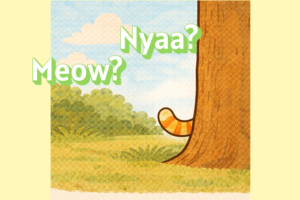Have you ever wondered where words like
murmur,
buzz,
or boom
originally came from?
Before English, French, Italian, or Spanish…
There was Latin — a language that shaped the vocabulary of Europe and gave rise to many of the sound-related words we still use today.
While Latin doesn’t overflow with playful sound words like Japanese or Korean, it planted the seeds of sound that echo across modern languages.
Let’s take a step back in time to discover how the ancient Romans captured the sounds of the world around them — and how those echoes still live in our words today.
Ancient Latin Sound Words
Here are some notable Latin words that mimic sound or describe the act of making sound — many of which are the ancestors of modern onomatopoeia:
| Latin Word | Meaning | Modern Descendants |
|---|---|---|
| bombus | deep buzzing sound | bomb, booming, boom |
| murmurare | to murmur, whisper softly | murmur, murmuring |
| tintinnabulum | small bell, jingling | tintinnate, tinkle, bell |
| sibilus | hissing | sibilant, hiss |
| plangere | to beat (often chest in grief) | plangent, lament, complain |
| crepare | to creak, rattle, crack | decrepit, crepitate |
These aren’t always pure onomatopoeia as we use them today, but they represent early efforts to match sound with meaning — something every language has tried in its own way.

How Latin Used Sound
Unlike modern sound words that are often playful (zoom, click, meow), Latin’s sound-related words were usually:
- More formal or poetic
- Used in literature, rhetoric, and ceremonial speech
- Less often used in everyday casual speech (compared to Japanese)
Roman poets like Virgil and Horace used sound-rich words like fragor (crash), murmur, and clangor to bring imagery to life in written verse.
Comparison with Modern Onomatopoeia
| Feature | Latin | English | Japanese |
|---|---|---|---|
| Sound mimicry | Poetic, symbolic | Literal & descriptive | Literal & emotional |
| Word form | Mostly verbs/nouns | Nouns, interjections | Repetitive root forms |
| Usage | Rhetoric, poetry | Daily & literary | Daily life, manga, literature |
| Emotion/textures | Rare | Somewhat | Rich & vivid |
Why Latin Still Matters
Even though Latin is no longer spoken, its sound words live on in many modern languages.
Knowing the Latin roots helps us understand:
- Where modern words come from
- How early humans tried to express sound
- Why languages differ in how they use sound
It reminds us that even in ancient times, people felt the need to describe what they heard — whether it was a whisper in the forum or the rumble of thunder in a poem.













Comments